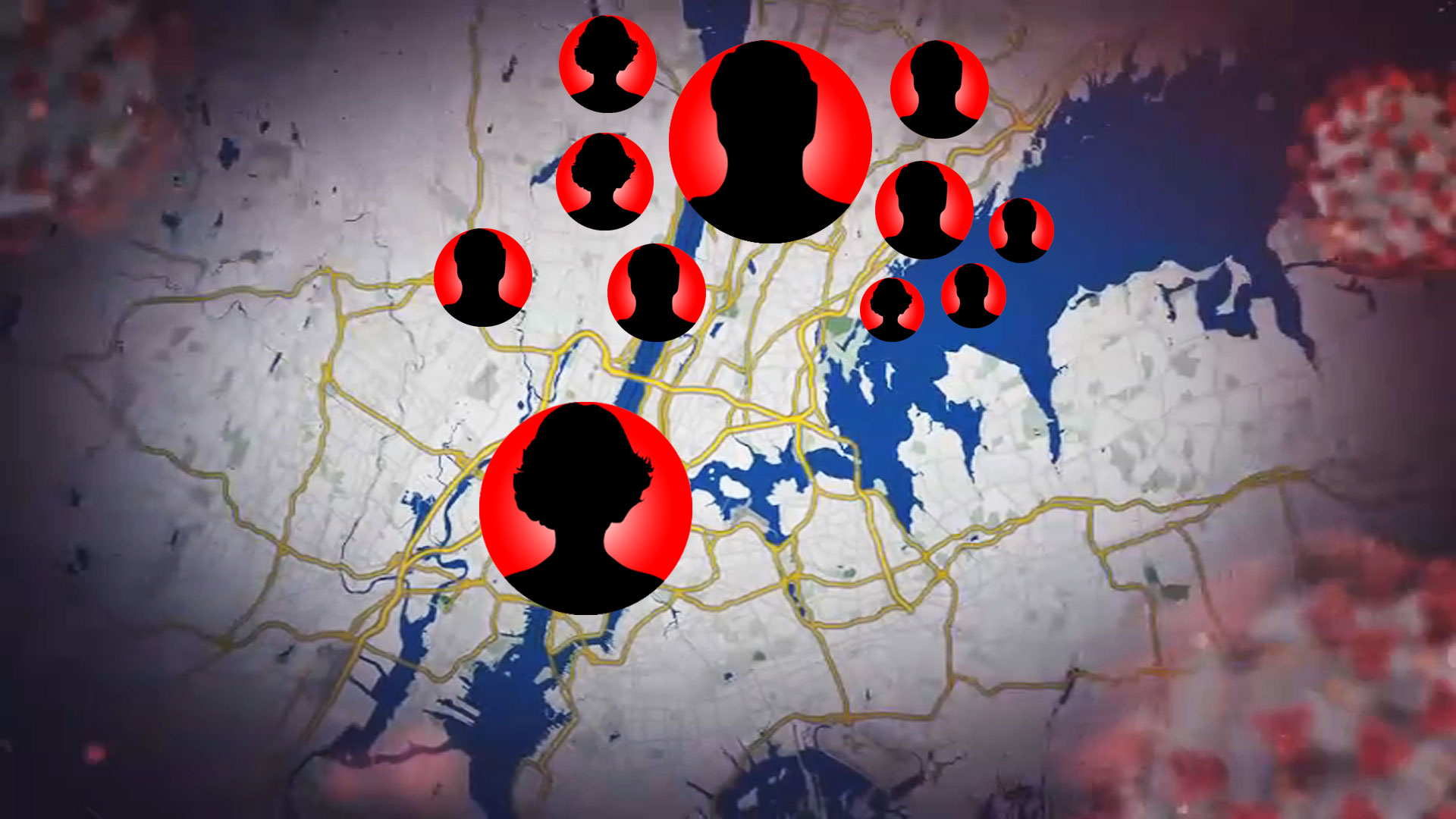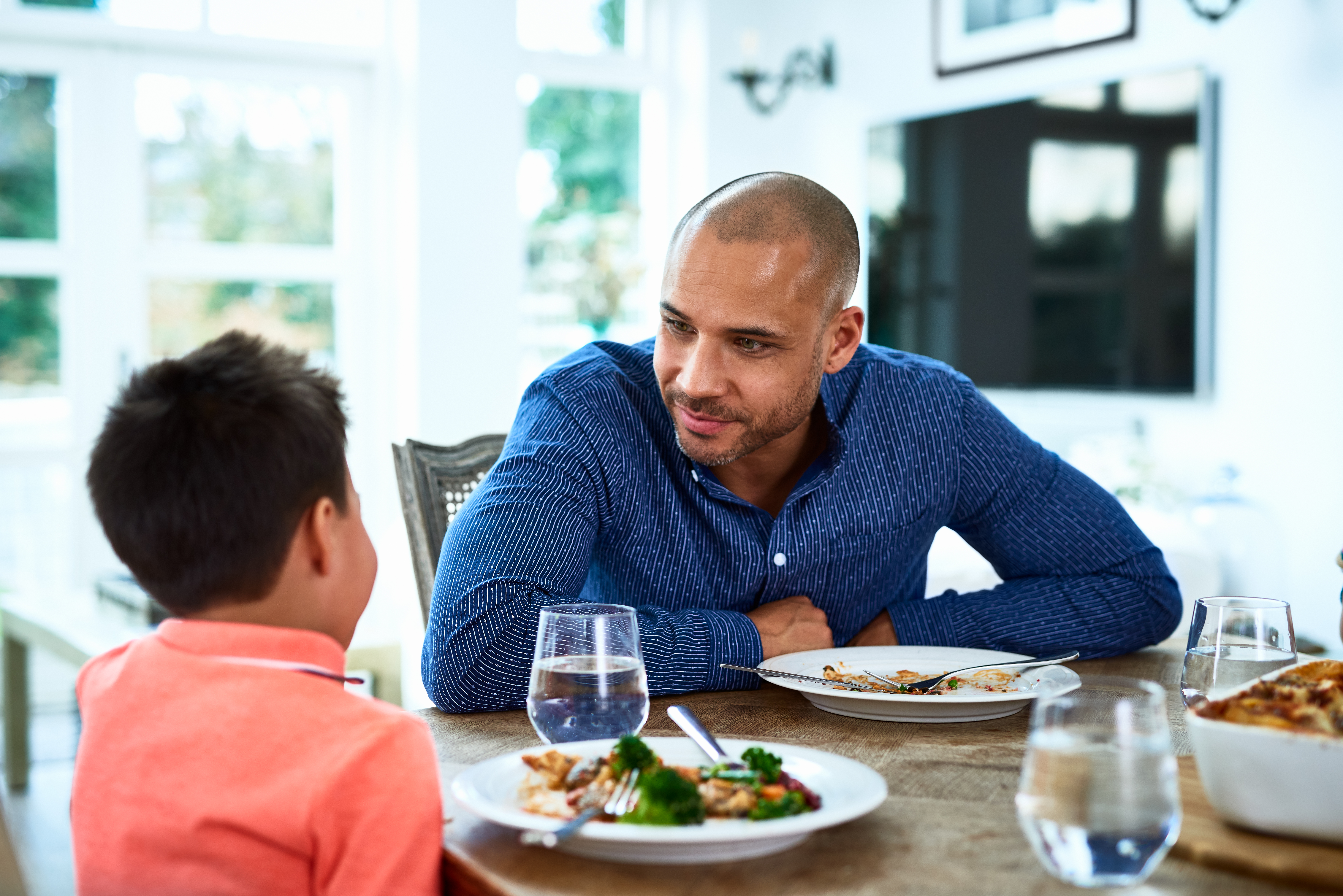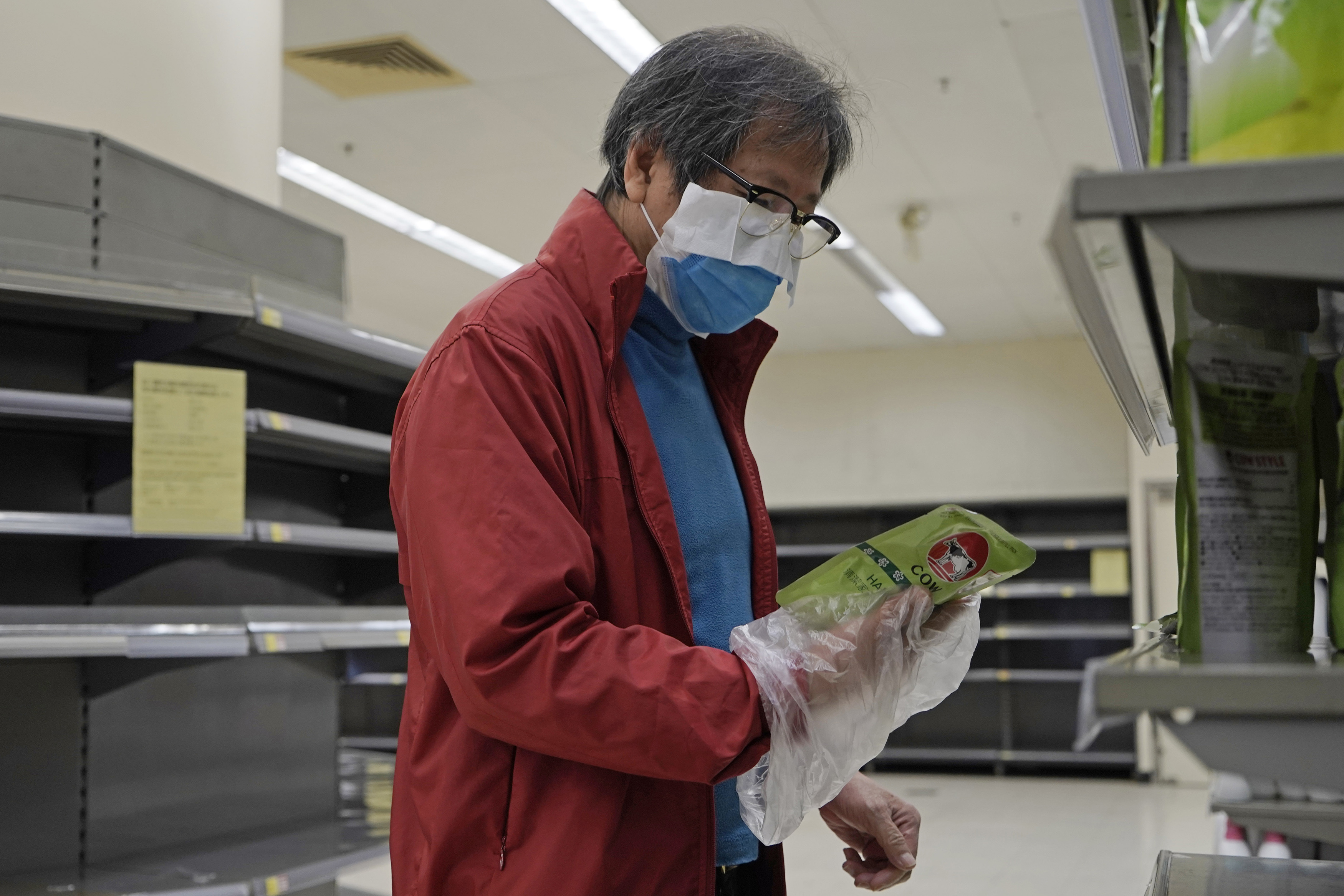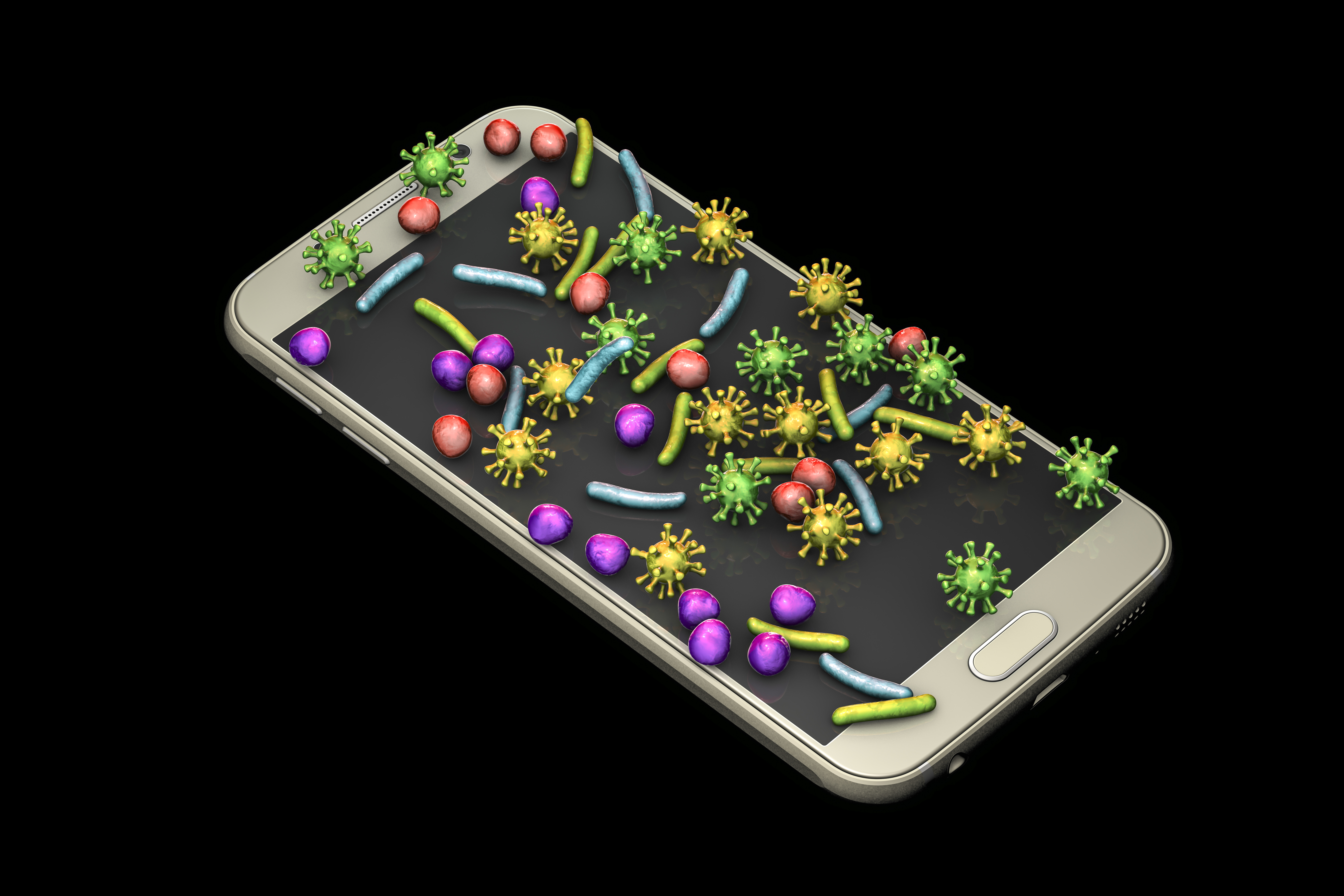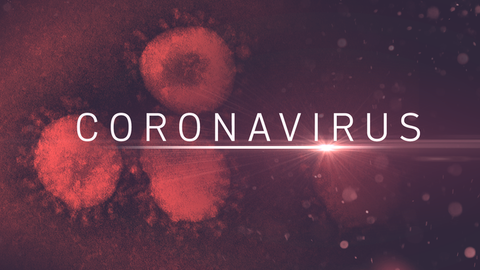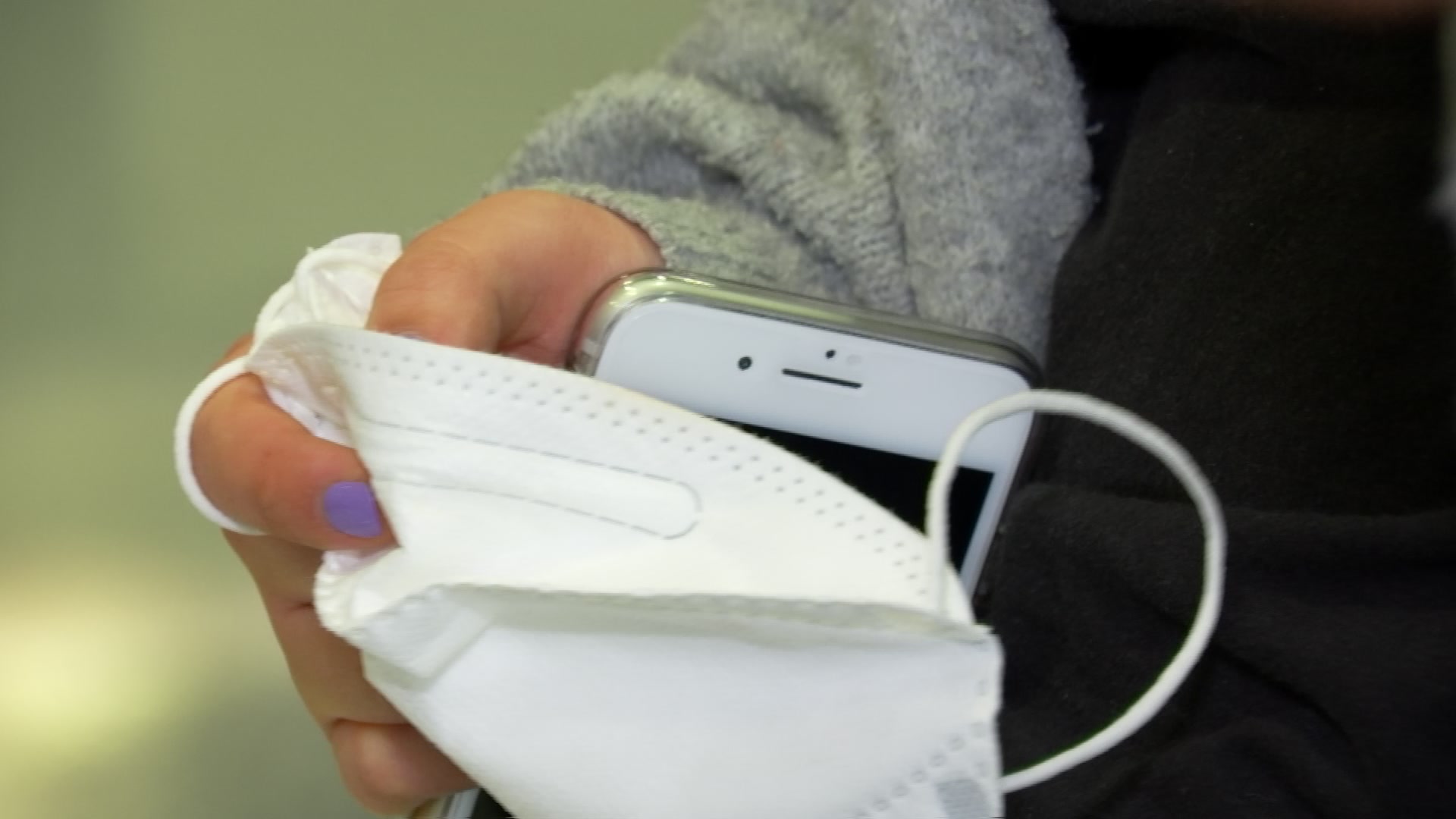What to Know
- It remains to be seen how widely COVID-19 will spread in tri-state area after 22 people in New York were confirmed to have the virus Thursday, just four days after the first local case was reported
- Two new NYC cases were confirmed Thursday, both patients in intensive care; cases have no known connection to travel or other local COVID-19 cases, marking fresh instance of community spread
- A New Jersey man in his 30s is a presumptive positive, sources say; he allegedly got it from one of the patients in New York. The state announced a second presumptive case on Thursday
New Directives? What's Mandatory? How Tri-State COVID-19 Action May Affect Your Daily Life
Two more people in the city have tested positive for coronavirus and are hospitalized in an intensive care unit and more cases have been confirmed elsewhere in the state, including the first on Long Island, bringing New York's total to 22 cases, Gov. Andrew Cuomo and Mayor Bill de Blasio said.
Most of the new cases announced Thursday were in Westchester County and are tied to the midtown Manhattan lawyer whose case marked the state's first instance of community spread, Cuomo said.
The Long Island patient is a 42-year-old man from Nassau County who is hospitalized and, according to Cuomo, had "underlying medical conditions." Officials said the man is from the Hempstead suburb of Uniondale.
NYU Winthrop Hospital confirmed the man was in isolation while receiving treatment, and his condition was improving. Officials believe that the case was community spread, with the source of the infection unknown.
Neither new New York City case — a man in his 40s and a woman in her 80s — has a known connection to travel or any previously diagnosed local COVID-19 patients, marking what appears to be fresh community spread in the five boroughs, de Blasio said. Both of them had underlying respiratory conditions that have exacerbated their symptoms — the man, vaping and smoking — the woman, age-related issues, the mayor said.
City disease detectives are tracing close contacts of both new patients and will ensure they are isolated and tested. Later on Thursday, retail clothing giant Gap said in a statement to CNBC that an employee at their New York City headquarters was confirmed to have the virus. The individual was not in the office on Thursday, and it was not immediately clear if their employee was one of the new cases reported by officials or a separate instance. Gap's Tribeca headquarters will now be closed indefinitely.
"The community spread dynamic is unpredictable and worrisome, so we're watching carefully ... our level of concern is rising for sure," de Blasio said later Thursday. "That said, the big picture point, that we know for sure is 80 percent of the folks who get it have very mild symptoms."
The mayor also announced a new order from the health commissioner Thursday -- one that applies to city workers, specifically first responders, health care workers and educators. It operates on a case-by-case basis. If the commissioner determines someone is at risk for coronavirus that person can be required to get a COVID-19 test.
Contact investigators are also tracing anyone who may have had contact with the Long Island patient. Identified close contacts have already been isolated, according to Nassau County officials.
De Blasio said he expected that any of those city workers who traveled to outbreak affected areas and also had symptoms would be required to undergo testing. Refusal to be tested will results in a mandatory quarantine order and employment consequences, the mayor added.
As for the rest of New Yorkers, anyone who has recently returned from China, Iran, Italy, South Korea or Japan is asked to isolated for 14 days.
Two schools in Manhattan announced that they will be closed on Friday, amid the spread of COVID-19 cases. The Spence School on the Upper East Side said on its website that it will be closed for a "comprehensive sanitization of the entire campus." On the other side of the island, Upper West Side's Collegiate School said on its website that it will be closed as well, but did not provide a reason. There have been no confirmed cases tied to either school, and the cleaning appears to be out of an abundance of caution.
Three teachers in New York City who had traveled to Italy have been tested for coronavirus. Test results for a teacher who works at James Madison High School in Brooklyn came back negative, but the other two were still pending. Officials said the teachers were in class for one day before they self-quarantined at home.
Other precautions in area include a Yonkers skating rink closing after potential exposure to COVID-19. E.J. Murray's Skating Rink would be closed out of an abundance of caution, mayor Mike Spano said, as there was "no evidence" any patrons were exposed to the virus.
The developments come amid an apparent surge of positive cases due to increased in-state and in-city testing — and while officials continue to tell people not to panic and that 80 percent of people who get it self-resolve, many are concerned about protecting themselves and their families.
That concern is only growing as more cases pop-up where "superspreaders" apparently passed the disease to others. The Westchester attorney who had an underlying respiratory illness, and was hospitalized in the state's first case of person-to-person spread, apparently passed it on to his neighbor and family, who passed it on to a friend's family -- and, possibly, others.
In New Jersey, a 32-year-old man tested positive for novel coronavirus but officials are awaiting a confirmed positive from the CDC, the mayor of Fort Lee said in an update statement Thursday. Acting Gov. Shiela Oliver announced a second presumptive case Thursday afternoon.
Latest Coronavirus News
Sources tell NBC New York that the Fort Lee man had contact with one of the New York patients; the man was said to be resting comfortably at a hospital and doing well as of Thursday morning.
The New Jersey State Department of Health has established a 24-hour coronavirus hotline to answer questions: 800-222-1222. New York has a similar hotline set up: 888-364-3065.
The sources didn't identify the New York connection to the Fort Lee man; at the time he was reported to have COVID-19, though, the only confirmed tri-state case not linked to the Westchester attorney was the Manhattan health care worker who traveled to Iran, the state's first confirmed case.
Her husband tested negative but is still being quarantined as a precaution, officials said.
On Thursday, the second presumptive positive case in the Garden State was a person in North Jersey, the Department of Health commissioner said. That patient was being treated at Englewood Hospital.
That first coronavirus case in the tri-state came Sunday night. Two days later, news broke of the Westchester attorney — and the following positive cases came in rapid succession, largely due in part to the state and city's ability to test people quickly and disease detectives' efforts to track contacts.
Quick Tips to Help Keep You Safe
It's still not clear how that Westchester man contracted the infection in the first place. He had no known travel to countries most affected by the outbreak and was considered to be the first person-to-person spread case.
That case touched off a flurry of precautionary testing and more confirmed positives. The attorney's 20-year-old son, 14-year-old daughter and wife, who works at his same law firm, all tested positive; the son was the only one to actually show symptoms. He attended Yeshiva University, which has been closed pending investigation since the news broke.
The daughter attended SAR Academy and High School in the Bronx. The family belonged to a synagogue. A New York Law School student reported prior contact with the attorney. The Health Department has been in touch with all connected facilities and communities and is providing continued guidance accordingly.
Other schools have been taking precautionary measures as well. The school district in Hastings-on-Hudson said it would close this week “out of an abundance of caution” because a parent had been in contact with a person under quarantine. Mount Vernon City School District said Wednesday that schools would close until Monday so cleaning crews can disinfect buildings.
In the city, De Blasio said public school trips to high risk-designated countries have been canceled. He noted there has been no noticeable change in city public school attendance and released a thorough accounting of how key city agencies, including the Department of Education, are handling COVID-19 preparation and response.
Amid the calls for calm, there has been a rush for supplies. On Wednesday, the city declared face masks to be temporarily in short supply, triggering consumer protection rules that make it illegal for stores to price gouge.
The general public doesn't need to rush to buy them, though. De Blasio clarified Wednesday that there are only two reasons to wear masks: 1) If you have the virus, it will help reduce the spread, or 2) if you're a health care professional working with people who have the virus.
Wearing masks "is not a general prophylactic for everyday people trying to ward off the disease," the mayor said.
The rise in cases has sparked concern about public transportation as well. New York officials have said the woman who first tested positive did not use mass transit after flying back to the States from Iran early last week. They have not said either way whether other patients had used mass transit while potentially contagious, but the MTA has engaged in a robust prevention and cleaning plan as part of the city's overall preparedness and response efforts. More details on what the MTA is doing about coronavirus here.
Taxi regulators are telling drivers and owners to clean their cars with disinfectant products at least once a day, paying special attention to surfaces that are touched often, such as door handles, armrests, and seat belts. Uber said it has similar protocols in place.
Gov. Andrew Cuomo continues to reiterate his early calls to remain calm. As he has in recent days, the governor sought Wednesday to reassure the public that the disease is often passed by close contact, not casual contact like riding in the same subway car as a person who may be sick.
“We have an epidemic caused by coronavirus," Cuomo said. “But we have a pandemic that is caused by fear.”
Previously, the governor announced a new directive requiring New York health insurers to waive cost-sharing associated with coronavirus testing, including emergency room, urgent care and office visits.
"We can't let cost be a barrier to access to COVID-19 testing for any New Yorker," Cuomo said.
How to Protect Yourself
New York City's Health Department released the following guidance for people who recently traveled to China, Iran, Italy, Japan or South Korea -- or for anyone who experiences fever, cough or shortness of breath:
- Stay home — do not travel or go to work or school while sick
- Go to a health care provider and tell them about your travel history
- If you do not have a health care provider or insurance, call 311
- Avoid contact with others
- Wash hands often with soap and water for at least 20 seconds. Use an alcohol-based hand sanitizer if soap and water are not available
- Avoid touching your face with unwashed hands
Nationally, the CDC said that as of Thursday it had a total of 100 cases reported by 13 states; only about a third of those have been confirmed to be related to travel. Eleven people have died, all of them from Washington state except for the newest victim, whose death was reported by California.
The CDC only updates its numbers once a weekday, though, and the numbers reflect the agency's total as of 4 p.m. the previous day. The case total in the United States could be higher. NBC News reported it as being up to 212 cases nationwide as of Thursday afternoon.
Answering Your COVID-19 Questions
CDC officials warned for weeks to expect a disruptive spread of the virus in America. They say they have enough kits to test more than 75,000 people right now -- and de Blasio said Thursday the city "urgently" needs the CDC to increase its supply of COVID-19 test kits. He also said the agency needs to expedite approval of any testing approaches currently being developed by private companies. Here's where stand now as far as developing a vaccine.
De Blasio said Thursday that the city's biggest challenge is not being able to test even more people: "Our single greatest challenge is the lack of fast federal action to increase testing capacity -- without that, we cannot beat this epidemic back."
The Senate overwhelmingly passed an $8.3 billion measure Thursday -- by a vote of 96 to 1 -- as part of national efforts to help combat the spread. The bill now goes to the White House for President Trump's signature. The money would pay for a multifaceted attack on that virus that has already infected nearly 100,000 people and killed more than 3,000 across the globe.

